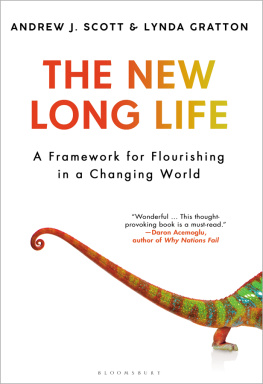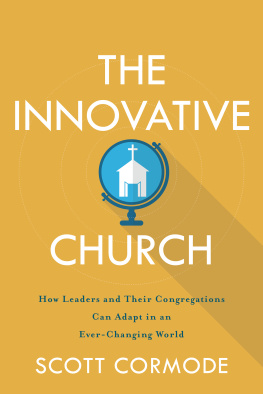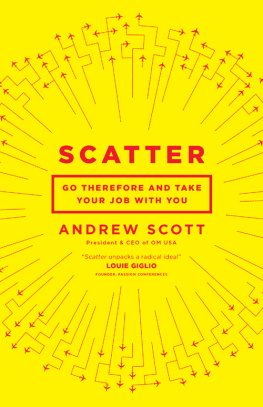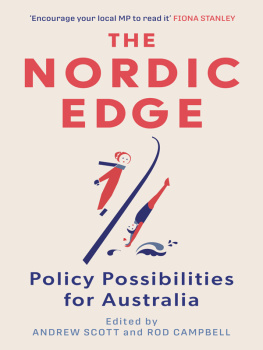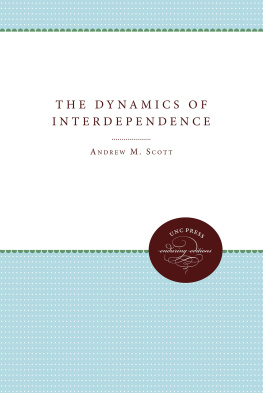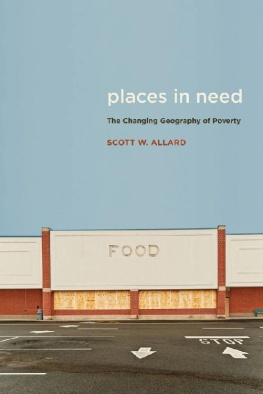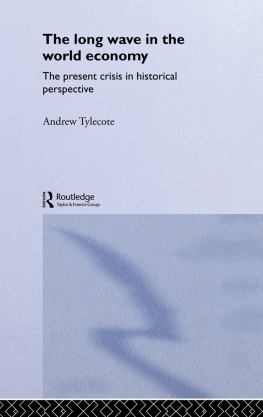Andrew J. Scott - The New Long Life: A Framework for Flourishing in a Changing World
Here you can read online Andrew J. Scott - The New Long Life: A Framework for Flourishing in a Changing World full text of the book (entire story) in english for free. Download pdf and epub, get meaning, cover and reviews about this ebook. year: 2020, publisher: Bloomsbury Publishing, genre: Romance novel. Description of the work, (preface) as well as reviews are available. Best literature library LitArk.com created for fans of good reading and offers a wide selection of genres:
Romance novel
Science fiction
Adventure
Detective
Science
History
Home and family
Prose
Art
Politics
Computer
Non-fiction
Religion
Business
Children
Humor
Choose a favorite category and find really read worthwhile books. Enjoy immersion in the world of imagination, feel the emotions of the characters or learn something new for yourself, make an fascinating discovery.
- Book:The New Long Life: A Framework for Flourishing in a Changing World
- Author:
- Publisher:Bloomsbury Publishing
- Genre:
- Year:2020
- Rating:5 / 5
- Favourites:Add to favourites
- Your mark:
- 100
- 1
- 2
- 3
- 4
- 5
The New Long Life: A Framework for Flourishing in a Changing World: summary, description and annotation
We offer to read an annotation, description, summary or preface (depends on what the author of the book "The New Long Life: A Framework for Flourishing in a Changing World" wrote himself). If you haven't found the necessary information about the book — write in the comments, we will try to find it.
Andrew J. Scott: author's other books
Who wrote The New Long Life: A Framework for Flourishing in a Changing World? Find out the surname, the name of the author of the book and a list of all author's works by series.
The New Long Life: A Framework for Flourishing in a Changing World — read online for free the complete book (whole text) full work
Below is the text of the book, divided by pages. System saving the place of the last page read, allows you to conveniently read the book "The New Long Life: A Framework for Flourishing in a Changing World" online for free, without having to search again every time where you left off. Put a bookmark, and you can go to the page where you finished reading at any time.
Font size:
Interval:
Bookmark:

THE NEW LONG LIFE

BLOOMSBURY PUBLISHING
Bloomsbury Publishing Inc.
1385 Broadway, New York, NY 10018, USA
BLOOMSBURY, BLOOMSBURY PUBLISHING, and the Diana logo are trademarks of Bloomsbury Publishing Plc
First published in 2020 in Great Britain
First published in the United States 2020
Copyright Lynda Gratton and Andrew J. Scott, 2020
Images designed by Thomas Bohm, User Design,
Illustration and Typesetting and White Halo Design
All rights reserved. No part of this publication may be reproduced or transmitted in any form or by any means, electronic or mechanical, including photocopying, recording, or any information storage or retrieval system, without prior permission in writing from the publishers.
Bloomsbury Publishing Plc does not have any control over, or responsibility for, any third-party websites referred to or in this book. All internet addresses given in this book were correct at the time of going to press. The author and publisher regret any inconvenience caused if addresses have changed or sites have ceased to exist, but can accept no responsibility for any such changes.
ISBN: HB: 978-1-63557-714-3; eBook: 978-1-63557-715-0
Library of Congress Cataloging-in-Publication Data is available.
To find out more about our authors and books visit www.bloomsbury.com and sign up for our newsletters.
Bloomsbury books may be purchased for business or promotional use.
For information on bulk purchases please contact Macmillan Corporate and Premium Sales Department at .
To Diane & Nigel,
Our partners in a new long life
CONTENTS
Human history is an impressive tale of collective achievement. Over thousands of years we have substantially increased our numbers, our lifespan and the resources available to us. We are today far richer and far healthier as a consequence.
Human ingenuity is at the heart of this progress, bringing improvements in knowledge that, embedded in new technologies and education, creates new possibilities and new opportunities. Fire, agriculture, writing, mathematics, the printing press, the steam engine, electricity, penicillin and computers are just some of the innovations that have propelled our standard of living upward.
While human ingenuity has driven these improvements, progress has not always been smooth or swift. Sometimes it is painful, protracted and tumultuous both for individuals and for society.
Take for example the switch around 10,000 years ago from foraging to farming. In the long run people became richer and healthier, but the transition to the new technologies of farming created a drop in living standards that persisted for centuries. During the UKs Industrial Revolution a similar lag occurred, when living standards failed to improve for many in the first few decades of technological disruption. The human burden wasnt just economic, it was also psychological. As a consequence of industrialisation people relocated away from their families and traditional communities into fast-growing cities, often lacking support and security. They also had to learn new skills, adopt novel roles and identities and often alienating ways of working. For many experiencing this transition, a sense of progress would have felt very distant.
Both these transitions share a common pattern: human ingenuity created technological advances which undermined existing economic and social structures which, in response, required a different form of human ingenuity social ingenuity . If technological ingenuity creates new possibilities based on new knowledge; then social ingenuity devises ways of living that enable these inventions to improve collectively, and individually, the human lot.
But importantly, social ingenuity does not automatically flow from technological ingenuity. And without social ingenuity, technological ingenuity does not bring unalloyed benefits. That is why the historical pattern of progress and improvement is more evident viewed in retrospect than through the perspective of those experiencing the shift. It is also why periods when a gap appears between these two types of ingenuity are characterised by anxiety, transition and social experimentation.
THE FRANKENSTEIN SYNDROME
We are living through a period where the gap between technological and social ingenuity is growing wider. Technological ingenuity is racing ahead, but social ingenuity is lagging and as a result our social forms the structures and systems that are the context of our lives have not yet caught up. We might be dazzled by the imminent promise of what technology can achieve, but we are anxious about the social consequences.
In Mary Shelleys novel Frankenstein , the creation of Dr Victor Frankenstein rebels and kills his maker. Today there is also a sense of a Frankenstein syndrome, fears that our very own human technological triumphs will rise up against us and create not human progress but human misery. In other words, that technological ingenuity is about to manifest itself so powerfully and rapidly it will overwhelm our way of living and we run the risk of losing our jobs, our livelihoods and even our sense of what it is to be human.
Media Musk. Shelleys novel is a cautionary tale of human knowledge and ingenuity.
Concerns around human ingenuity are not simply restricted to technology. There is also a profound unease about longevity. During the twentieth century, human ingenuity, through major public health improvements and staggering medical developments, significantly increased the length of life. At the beginning of the century a girl born in the UK could expect a lifespan of around fifty-two years; by the end of the century this had increased to eighty-one years (and by 2010, eighty-three). By 2050 there will be more than 438 million people in China over the age of sixty-five (thats more than the current population of the US); in Japan 1 in 5 people will be over the age of eighty. But rather than celebrate these extraordinary achievements, the fear is that an aging society will bankrupt countries, destroy pensions, increase health costs and lead inevitably to a weaker economy. We fear human ingenuity and worry that the advancement of knowledge will undermine human life and well-being.
These concerns about human achievements backfiring are understandable but we believe they are also limiting. Given the historical record, surely there are ways that can be found to ensure that humanity benefits
The challenge is that for these benefits to be really felt, social ingenuity must be as widespread and as profound and innovative as technological ingenuity. That means each of us must be ingenious: be prepared to question norms, create new ways of living, build deeper insights, experiment and explore. And that also means that our institutions be they governments, education or corporations must also rise to the challenge of social ingenuity.
It is this need for social ingenuity that is the fundamental motivation for us writing this book. Our hope is to ignite a conversation about what it is we as humans would like to achieve in response to new technologies and longer lives and how we might seek to flourish in the coming decades. We want to support you as you consider what is likely to happen in the years ahead; to intrigue you about the forms social ingenuity could take; and to provide you with the tools to proactively navigate the transitions and upheavals that we are all experiencing.
SOCIAL PIONEERS
Discussions about how our future will be transformed invariably focus on the phenomena of the rise of the robots and an aging society. What is noticeable about these expressions is how impersonal they are. They are about machines or about the other. Yet the human ingenuity required to make these developments work for all of us will be fundamentally personal.
Next pageFont size:
Interval:
Bookmark:
Similar books «The New Long Life: A Framework for Flourishing in a Changing World»
Look at similar books to The New Long Life: A Framework for Flourishing in a Changing World. We have selected literature similar in name and meaning in the hope of providing readers with more options to find new, interesting, not yet read works.
Discussion, reviews of the book The New Long Life: A Framework for Flourishing in a Changing World and just readers' own opinions. Leave your comments, write what you think about the work, its meaning or the main characters. Specify what exactly you liked and what you didn't like, and why you think so.

